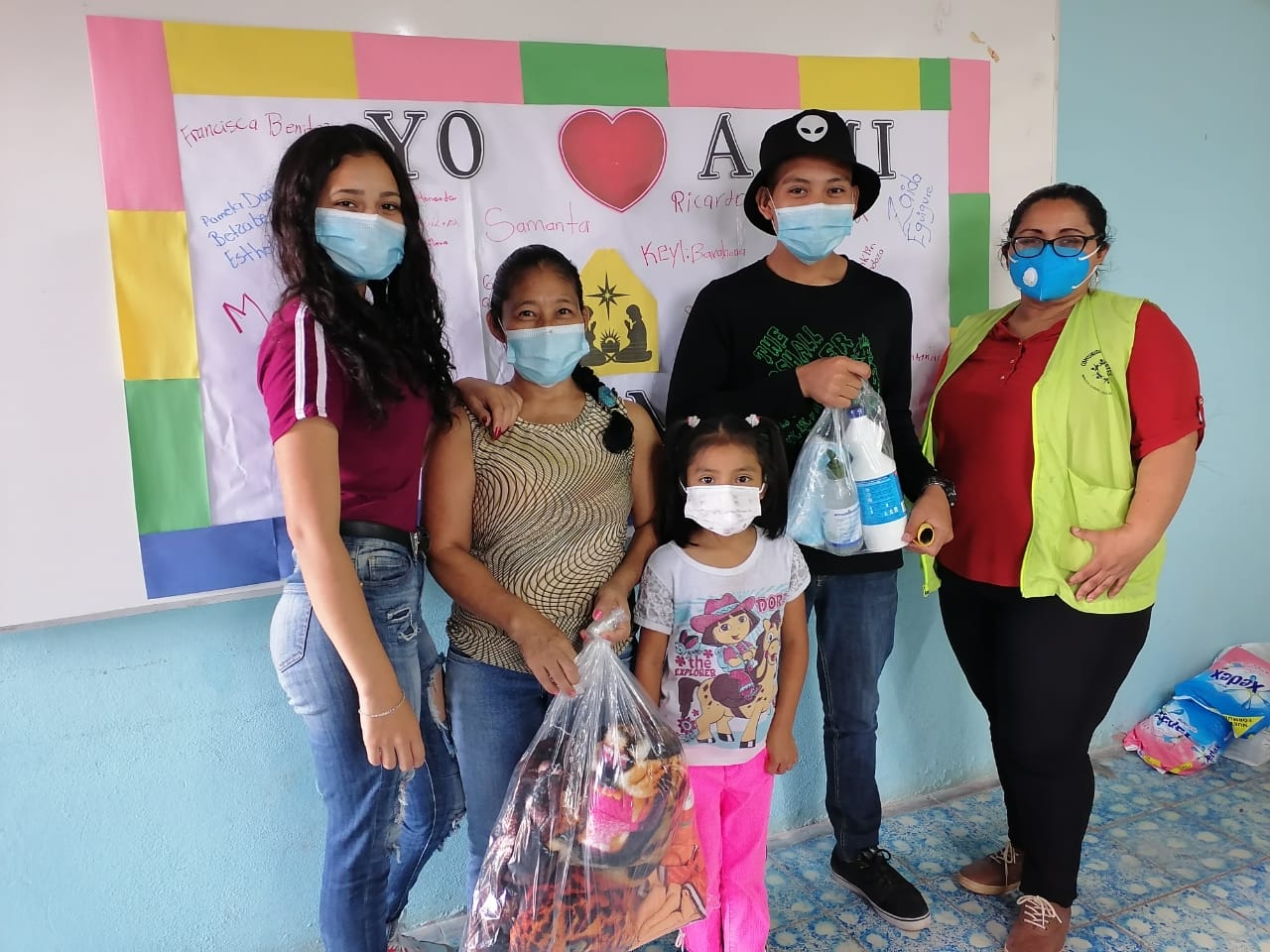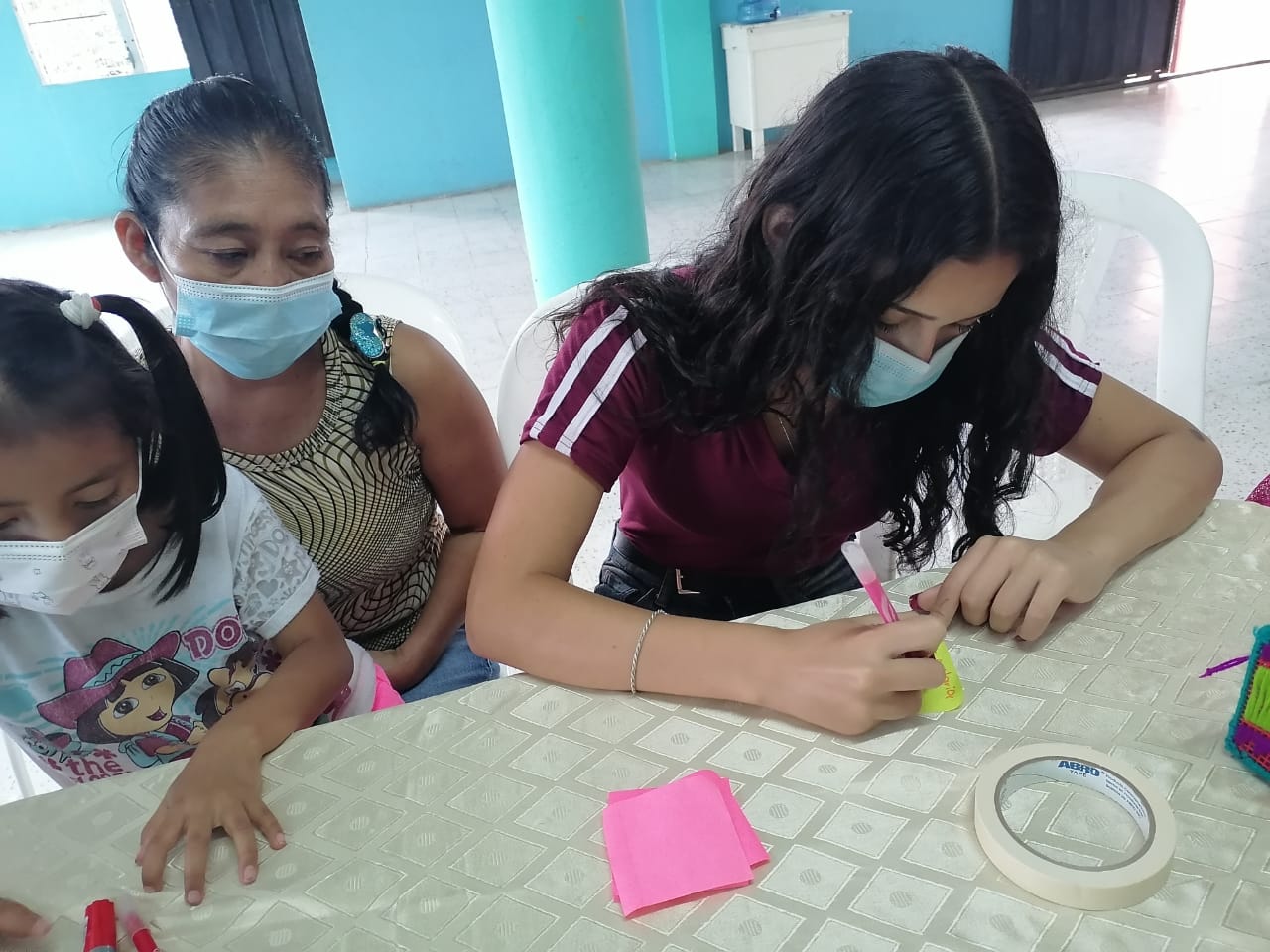Transforming Family Stories in Honduras

Imagine a world in which a 10-year-old has never heard her parents say, “I love you.” And her parents never heard “I love you” from their own parents. Now imagine she walks to school, eager to learn, only to find her teacher is not there. She returns home where she witnesses her father hitting her mother because her mother left the house without his permission. Then, her father leaves and never returns.
Fast forward in time and the girl has dropped out of school. She is an alcoholic. She marries a man who hits her frequently. She has a son who grows up to be an abusive alcoholic who never heard the words “I love you” from his mother.
In vulnerable families, often patterns of neglect and abuse are passed on from one generation to another. The girl, like her mother, was never taught that she has rights–rights to a proper education, to healthcare, to live free of abuse. She has also never been taught to advocate for herself. This is not just an “imagine if” scenario–it is the reality for many Honduran families.
Honduras has a population of 9 million with 53 percent under the age of 24 and 68 percent living in poverty. In peri-urban and urban cities like the Honduran capital, Tegucigalpa, the combination of poverty and the youthfulness of the population has become a formula for increased crime, alcohol and drug abuse, gang violence, and gender-based violence including domestic and sexual violence.
Since 2009, World Renew and local partner, Association for a More Just Society (ASJ), have worked together with the vision of pursuing peace, justice, and transformation in two neighbourhoods in Tegucigalpa. Working with the most vulnerable and at-risk children and youth, ASJ provides safe spaces–Youth Clubs–for young people aged 10 to 18 to learn to build healthy relationships, self-esteem, understanding of rights and gender equality, problem-solving skills, and a capacity to socialize. And then, once mature enough, they are provided the support and experiences to develop leadership and advocacy skills; youth participate in social audits of schools and health centres to assess if children and youth are receiving quality and consistent education and healthcare. This develops youth’s sense of social responsibility and action, knowing that they are making a difference.
Maybelin joined the program in 2016. Her father had abandoned the family. And, in order to provide for her children, Maybelin’s mother, a domestic worker, had no choice but to leave Maybelin and her three siblings on Monday mornings to go to work, not returning until Friday nights.

As a member of the clubs, Maybelin went from shy and insecure, sitting in the back row during sessions where she did not participate in the activities, to an eager participant who demonstrated growing self confidence by volunteering to distribute snacks and take attendance.
Maybelin could have easily become one of the young Hondurans who dropped out of school. But because program mentors work with local schools to build relationships, when Maybeline became truant and began to indulge in alcohol, the mentors were notified. Maybelin’s mother admits the mentors stepped in when she could not. Today, Maybelin is determined to complete her education. She says, “I will fight until I obtain my degree in finance.”
World Renew and ASJ efforts in Tegucigalpa are supported in large part by the generosity of the Manitoba Council for International Cooperation (MCIC). Of the 402 participants who are currently benefitting from the program, 150 are funded by MCIC.
Established in 1991, International Development Week (IDW) is an annual initiative that engages Canadians on global issues and offers an opportunity to acknowledge Canadian contributions to poverty reduction and international humanitarian assistance in the developing world. MCIC produced a video for IDW 2021 (February 7th to 13th) and interviewed ASJ Program Director, Maribel Muñoz, to discuss the program. You can view the video to learn more about the program.
World Renew would like to thank Canadians and the government of Manitoba for helping to make this program possible. With COVID-19 and back-to-back hurricanes, Eta and Iota, hitting Honduras in late 2020, the program has become more essential for participants to keep believing in a future where they can change their families’ stories of poverty. As suicide levels in Honduras rise in the wake of these trying times, program mentors are connecting virtually with participants to provide emotional support and hope.
Please consider a donation to this life-changing program. When you give to World Renew, MCIC will match those contributions 1:1—doubling your gift and making an even greater impact for Honduran families. Thank you for your continued generosity!



